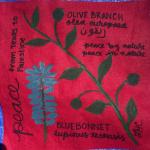Here is a Sunday school lesson on Cain and Abel.
The Firstborn of Man
Genesis 4:1-2 “Now Adam knew Eve his wife, and she conceived and bore Cain, saying, “I have gotten a man with the help of the Lord.” And again, she bore his brother Abel. Now Abel was a keeper of sheep, and Cain a worker of the ground.”
The first birth of humanity turned out not to be so good as Adam and Eve had a child named Cain but the second child born, Abel, was nearly the opposite of Cain as Cain was a farmer but Abel a shepherd. The problem was not with Abel but with Cain, as we shall see.
Why was Cain given the name which means “possession” (from the Hebrew “Qayin”)?
Why would Abel’s name mean “breath” from the Hebrew word “hebel?”
Was there anything wrong with Cain being a farmer as opposed to Abel being a shepherd or keeper of sheep?
Acceptable Offerings
Genesis 4:3-5 “In the course of time Cain brought to the Lord an offering of the fruit of the ground, and Abel also brought of the firstborn of his flock and of their fat portions. And the Lord had regard for Abel and his offering, but for Cain and his offering he had no regard. So Cain was very angry, and his face fell.”
We don’t exactly know why God accepted Abel’s offer but not Cain’s. Perhaps it was due to Cain’s attitude or that he labored in the fields to grow what was offered. In contrast, Abel’s offering of a sacrificial lamb was the “firstborn of his flock” and had the “fat portions” included in the offering. Both gave an offering but Cain offered what was produced from his hands which God might consider works but it may be that Abel gave a better offering since he give the first and the best while Cain may have simply brought a bunch of vegetables to offer, which showed little or no cost to him. That may be why God had regard for Abel’s offering but not for Cain’s. Then “The Lord said to Cain, “Why are you angry, and why has your face fallen? If you do well, will you not be accepted? And if you do not do well, sin is crouching at the door. Its desire is for you, but you must rule over it” (Gen 4:6-7).
Did God accept Abel’s sacrifice because it showed the necessity for shed blood as an offering or sacrifice for sin?
Was a blood sacrifice given by Abel the reason God accepted it?
Does Cain’s offering have anything to do with works?
What did God mean by saying “sin is crouching at the door…but you must rule over it?”
The First Murder
Genesis 4:8-9 “Cain spoke to Abel his brother. And when they were in the field, Cain rose up against his brother Abel and killed him. Then the Lord said to Cain, “Where is Abel your brother?” He said, “I do not know; am I my brother’s keeper.”
Why did Cain kill his brother Abel? Was it jealousy or anger that God accepted Abel’s offering but not Cain’s? This we know for sure, it was “By faith Abel offered to God a more acceptable sacrifice than Cain, through which he was commended as righteous, God commending him by accepting his gifts. And through his faith, though he died, he still speaks” (Heb 11:4). The Apostle John adds that “We should not be like Cain, who was of the evil one and murdered his brother. And why did he murder him? Because his own deeds were evil and his brother’s righteous” (1st John 3:12). That might explain why Cain’s offer was not accepted while Abel’s was accepted. Cain’s “own deeds were evil” but “his brother’s righteous” so this might be why Cain was angry and God didn’t accept his offering.
Are we our brothers and sisters keepers?
Why was Cain so angry?
Was Cain’s anger at God or was it directed toward Abel?
Have you felt perhaps what Cain felt when others gave greater gifts or offerings than you?
The Cursed Ground
Genesis 4:10-12 “And the Lord said, “What have you done? The voice of your brother’s blood is crying to me from the ground. And now you are cursed from the ground, which has opened its mouth to receive your brother’s blood from your hand. When you work the ground, it shall no longer yield to you its strength. You shall be a fugitive and a wanderer on the earth.”
God put a mark on Cain to protect him, perhaps from revenge of Cain’s relatives who would begin to populate the earth later. We don’t know what kind of mark this was, we can only guess but it must have been obvious to anyone that saw it. God not only placed a curse on Cain but God cursed the ground on account of Cain and now, like today, work takes the sweat of the brow and the earth doesn’t yield its produce without a lot of effort. In the end, “the Lord put a mark on Cain, lest any who found him should attack him. Then Cain went away from the presence of the Lord and settled in the land of Nod, east of Eden” (Gen 4:15-16).
What kind of mark might God have placed on Cain?
What changed in the ground that it now took a lot of work to grow and harvest food?
What does God mean that Abel’s blood “is crying to me from the ground?”
Conclusion
I urge you in your study to look at all of the Bible verses and read them aloud in the class so that you can get the most out of this lesson on Cain and Abel but one lesson for sure is that Scriptures says, “Woe to them! For they walked in the way of Cain and abandoned themselves for the sake of gain to Balaam’s error and perished in Korah’s rebellion” (Jude 1:11), giving us a warning about walking contrary to the ways of God. Later, “Cain knew his wife, and she conceived and bore Enoch. When he built a city, he called the name of the city after the name of his son, Enoch” (Gen 4:17) but Enoch ended up being a very godly man, who unlike Cain, walked with God and was taken up and was no more or as the Scriptures say, “Enoch walked with God, and he was not, for God took him” (Gen 5:24).
Why did God take Enoch?
What does that mean?
What are the “ways of Cain?”
What has changed in your understanding about Cain and Abel in this study?
Article by Jack Wellman
Jack Wellman is Pastor of the Mulvane Brethren Church in Mulvane Kansas. Jack is also the Senior Writer at What Christians Want To Know whose mission is to equip, encourage, and energize Christians and to address questions about the believer’s daily walk with God and the Bible. You can follow Jack on Google Plus or check out his book Teaching Children the Gospel available on Amazon.
















